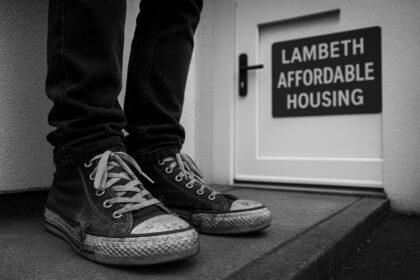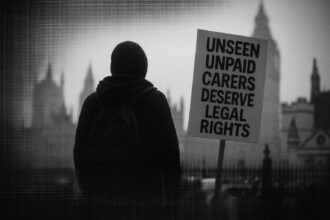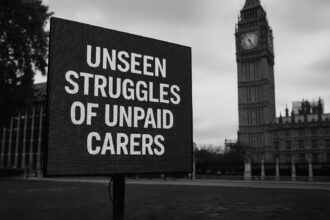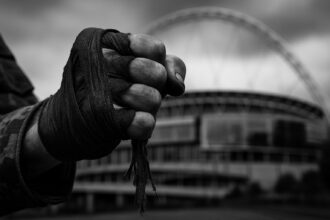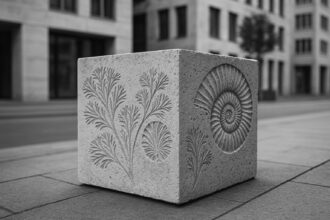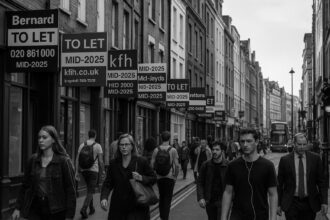The second annual Interfaith Family Pride Festival in Evanston brought together 15 congregations in Raymond Park, showcasing performances and activities that celebrate LGBTQ+ inclusion within faith communities, signalling a powerful shift towards solidarity and acceptance amid ongoing social challenges.
In a vibrant celebration of inclusivity and community, Evanston’s second Interfaith Family Pride Festival took place in Raymond Park, hosted by several local houses of worship. Building on the success of its inaugural event last year, this festival attracted many families eager to engage in a supportive atmosphere during Pride Month.
The event featured a talent stage that was fully booked with performances from notable groups such as the Chicago Gay Men’s Chorus and the Artemis Singers, a well-regarded ensemble with a history extending back to the 1980s. The festivities were set to culminate with an appearance by Merriam Levkowitz, affectionately known as the “Drag Bubbie,” who is nationally celebrated in the drag performance scene. Alongside the entertainment, children had a wealth of activities to choose from, including a balloon art station and face painting, with popular treats like cotton candy and ice cream generously provided by C&W Market and Ice Cream Parlor.
Rev. Eileen Wiviott, who leads the Unitarian Church of Evanston and played a significant role in organising the festival, articulated a message of solidarity. “Evanston’s faith community is loud and proud about their support of and solidarity with the LGBTQ community,” she stated. The festival aimed to provide families with an opportunity to witness the support for LGBTQ equality from various faith traditions, highlighting participation from approximately 15 congregations, including prominent churches such as the First Congregational Church and St. Luke’s Episcopal Church.
Rev. Jason Coulter, senior minister at the First Congregational Church, expressed the importance of such events in the current sociopolitical climate. He noted, “The world needs this kind of expression of pride…for it to come from faith communities signals to people that there are not only safe spaces but also allies who stand alongside the LGBTQ+ community.” This sentiment resonates amidst a backdrop where many faith communities have grappled with their historical relationships with LGBTQ individuals. Such gatherings serve to shift narratives by demonstrating that not all churches harbor exclusionary beliefs; rather, many are progressive and embrace inclusionary practices.
The festival effectively underscored a broader transition among faith organisations to build bridges rather than walls. For example, participating congregations have expressed commitments to social justice and welcome individuals of diverse backgrounds and identities. This was echoed in the mission of the Unitarian Church of Evanston, which aims to nurture a community grounded in joy, hope, and justice for all.
As the festival unfolded, it not only showcased performances and joyous interactions but also offered a critical response to the encroaching shadows of intolerance towards the LGBTQ community in various spheres. By creating a community space that fosters acceptance and celebration, the festival affirmed its role as a beacon of hope, signalling that faith can coexist with queerness—a powerful message in today’s society.
 Reference Map:
Reference Map:
- Paragraph 1 – [1], [2]
- Paragraph 2 – [2], [5]
- Paragraph 3 – [1], [4], [6]
- Paragraph 4 – [5], [7]
- Paragraph 5 – [1], [2]
Source: Noah Wire Services
- https://evanstonnow.com/pride-shines-in-raymond-park/ – Please view link – unable to able to access data
- https://evanstonroundtable.com/2024/06/02/interfaith-family-pride-fest-celebrates-faith-queerness/ – The inaugural Interfaith Family Pride Fest in Evanston celebrated the intersection of queer identity and faith, acknowledging the historical harm from faith communities to the LGBTQIA community. Organised by the First Congregational Church of Evanston and 14 other religious organisations, the event featured activities like glitter blessings, drag performances, and drag queen story time. The headliner, Flamy Grant, is the first drag performer to land a song on the iTunes Christian Charts. The festival aimed to create a safe and inclusive space for the LGBTQIA community within faith contexts.
- https://ucevanston.org/ – The Unitarian Church of Evanston (UCE) is a diverse community welcoming individuals of all genders, ages, races, ethnicities, abilities, identities, backgrounds, and sexual orientations. Their mission is to nurture the human spirit for a world made whole, fostering a community of joy and hope, cultivating minds, sustaining spirits, and working towards a more just and peaceful world. UCE offers various programs and services, including space rentals for events and meetings, with amenities like a new kitchen, state-of-the-art technology, and accessible entry.
- https://www.chicagowelcomingchurches.org/partners/ilcevanston.php – Immanuel Lutheran Church of Evanston is a Reconciling in Christ congregation of the Evangelical Lutheran Church in America (ELCA). Their ‘Affirmation of Welcome’ states they welcome people of every age, size, color, culture, sexual orientation, gender identity, and more. The church is committed to social justice, particularly ministries that feed people both physically and spiritually. They invite individuals to worship and work with them, emphasizing a passion for social justice and inclusion.
- https://chicagowelcomingchurches.org/partners/faithatfirst.php – First United Church of Evanston is a member of the Chicago Coalition of Welcoming Churches, a collaboration of over 80 churches and ministries in the Chicago metropolitan area that welcome and affirm people of all sexual orientations and gender identities. The coalition aims to spread the message of LGBTQ inclusion and connect leaders, members, and guests for fellowship and education, enabling support and resource-sharing for practices of faithful welcome.
- https://chicagowelcomingchurches.org/partners/ucevanston.php – The Unitarian Church of Evanston (UCE) is a member of the Chicago Coalition of Welcoming Churches, a collaboration of over 80 churches and ministries in the Chicago metropolitan area that welcome and affirm people of all sexual orientations and gender identities. The coalition aims to spread the message of LGBTQ inclusion and connect leaders, members, and guests for fellowship and education, enabling support and resource-sharing for practices of faithful welcome.
- https://graceevanston.org/who-we-are-find-us – Grace Lutheran Church of Evanston is a Reconciling in Christ congregation, welcoming all individuals regardless of sexual orientation, gender identity, race, culture, ethnicity, age, physical or mental abilities, socioeconomic position, family structure, or faith journey. They are committed to anti-racism, social and economic justice, and environmental care. The church acknowledges its location on the ancestral homelands of Indigenous peoples and strives to repair ongoing injustices and build right relationships with Indigenous communities.



